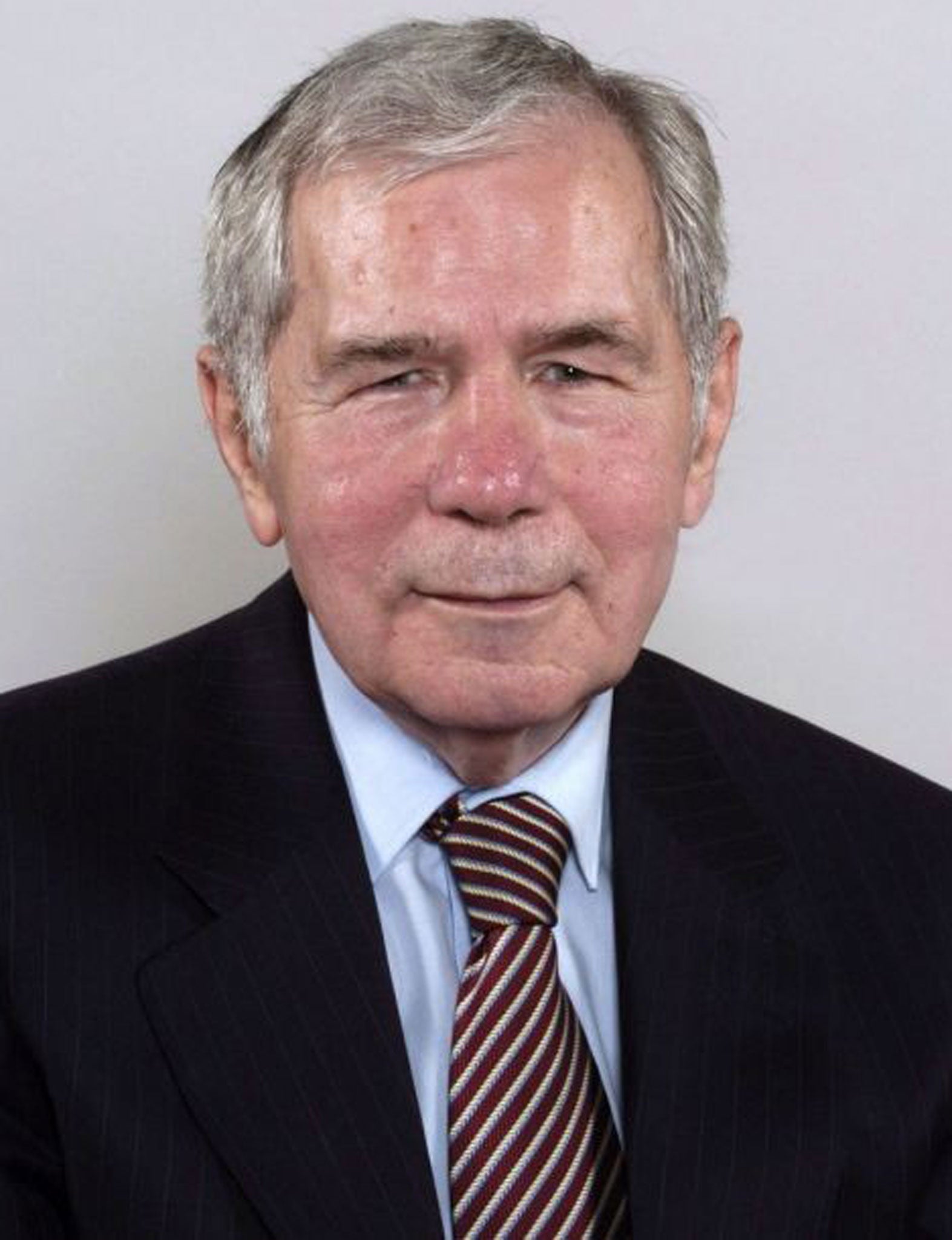Gyula Horn: Politician who helped bring down the Iron Curtain

Gyula Horn was the last Communist Foreign Minister of Hungary, who started opening the Iron Curtain. On 27 June 1989 he joined Alois Mock, the Austrian Foreign Minister, to pull down a section of the barbed wire dividing their countries. During the following months thousands of East Germans used the route to emigrate to Austria and West Germany. It was the beginning of the end for East German Communism. In Hungary Horn is better known for a massive austerity programme when he was Prime Minister in 1995. The package sparked massive opposition.
The son of a Communist executed by the Nazis in 1944, Gyula Horn was born in a working-class district of Budapest in 1932. Horn was brought to believe in Soviet Communism, and this was reinforced by the liberation of Hungary by the Red Army in 1945. He studied in a technical school, going on to higher education in the Soviet Union. In 1954 he graduated from the Rostov-on-Don College of Economics and Finance and returned to Hungary to work in the Ministry of Finance.
These were the years of Matyas Rakosi's Stalinist dictatorship, one of the most extreme in the Soviet bloc. The harshness of the regime, along with Nikita Khrushchev's denunciation of Stalin in 1956, led to the Hungarian revolution in October of that year which was crushed by Soviet tanks and a minority of the Communists. Horn sided with the hard-liners, serving in a militia to hunt down anti-Soviet elements.
He worked in the Ministry of Finance from 1954 until 1959, then the Foreign Ministry. There he was engaged in the important independent Soviet department. In the 1960s he was sent to the embassies in Bulgaria and Yugoslavia then in 1969 was ordered back to Budapest to work in the foreign affairs department of the Communist Party; he became its head in 1983. Two years later he was appointed deputy ministry of Foreign Affairs. His final appointment before the fall of the Communist regime was as foreign minister, in 1989.
Unlike their East German comrades, Hungarian Communists were moving to a more relaxed style of government under the influence of Mikhail Gorbachev. In February 1989 the Communist leadership endorsed in principle the multi-party system and the characterisation of the October 1956 revolution as a “popular uprising”, rather than, as earlier, a counter-revolutionary coup. The Hungarian parliament adopted a package for democracy which included free trade unions, freedom of association and assembly, freedom of the press and a new electoral law. A radical revision of the constitution was agreed. The Soviet Union signed an agreement in April 1989 to withdraw Soviet forces by June 1991.
So the stage was set for Horn's dramatic media event, which was carefully staged as Horn and Mock cut the only remaining section of the Iron Curtain on the border. The decision had already been taken to disassemble the physical barrier. East Germans, who had entered Hungary as tourists, were allowed to cross into Austria on 19 August 1989 as refugees during a civic gathering on the border that came to be known as the Pan-European Picnic. Tens of thousands followed after 10 September 1989, when Horn announced that Hungary would open its border the following day. The Berlin Wall came down inNovember.
Elected to Parliament in 1990, after a period in opposition, Horn led the socialists to a huge victory in the 1994 election. His reformed Socialist party won a majority but he invited the free market liberals to join the government, which then introduced a major austerity programme, splitting the party. Horn's government privatised state enterprises, devalued the currency, restricted imports and lured foreign investment, boosting growth and winning approval from the business community. But welfare cuts soon alienated many ordinary Hungarians.
Horn relinquished leadership of the party after the Socialists lost the 1998 election and gradually withdrew from political life. In 1990 he was awarded the Charlemagne Prize by the city of Aachen – joining past winners Winston Churchill and Vaclav Havel – for laying “one of the foundation stones for European unity”. He died in hospital after a long illness.
Gyula Horn: politician: born, Budapest 5 July 1932; married Anna Kiraly (one daughter, one son); died Budapest 19 June 2013.
Subscribe to Independent Premium to bookmark this article
Want to bookmark your favourite articles and stories to read or reference later? Start your Independent Premium subscription today.

Join our commenting forum
Join thought-provoking conversations, follow other Independent readers and see their replies